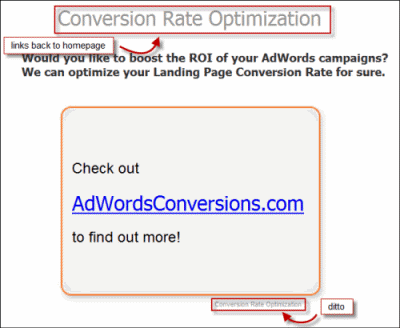
Love is blind. And that’s no more evident than when it comes to Google’s undying affection for exact match domains.
Yes, Google hearts exact match domain names “4-eva.” It’s true. I see it every day: sites with no links, no content, no authority top the SERPs because they have query-perfect domain names. These darlings of the Web get a free ride, and don’t have to play by the same set of SEO rules as the rest of us with “regular” domain names.
Basically, an exact match domain is a license to rank.
Why is Google Ga Ga Over Exact Match Domain Names?
Google’s infatuation with exact match domain names has been going on for years, which is pretty frustrating. Because despite their countless “quality” updates to the search algo and pledge to clean up the cesspool, Google is still weak in the knees with exact match love, giving flimsy sites great visibility.
Heck, even Matt Cutts is on record that Google gives more ranking weight to sites with keywords in the domain.
So why is Google playing favorites? Here are my thoughts.
- Branded search – Google’s big on branding as a sign of quality (or so they say). And I assume that in their eyes exact match = branding signal.
- Superior relevancy – Google probably views a match between query and domain as offering a very high degree of relevancy.
- Scarcity – Exact match domain names are a rare commodity. There are only a handful of sites for each query with an exact match domain name. So Google puts more value on this factor.
- Early bird special – If you’ve got an exact match domain name, Google must see you as a leader. Either you were first with that domain or you likely paid a ton of cash for it. Either way, you’re a big winner.
In any case, this favoritism amounts to Google giving sites that are poorly optimized the benefit of the doubt, and a free pass to outrank sites that are far more relevant to a related query.
Poorly-Optimized, Exact Match Domains and the Engine that Loves Them
The SERPs are littered with flimsy sites benefiting from Google’s soft spot for exact match domains. For example, conversionrateoptimization.org ranks #9 on page one Google for the query “conversion rate optimization.”

But does this site really warrant a page one ranking? A close look at some conventional ranking factors should give us a better idea. For starters, let’s use SEO for Firefox to check out inbound links.
The site has zero site links, zero page links, and a zero PageRank too boot (yes, i know…toolbar pr means nothing). Zeros across the board!
Okay, maybe links aren’t conversionrateoptimization.org’s strong suit. Maybe this site is doing a great job with producing relevant and informative content. Let’s take a look.
Okay, so not much in the way of relevant content either (or any content for that matter). Yet the page does have two instances of the exact match keywords (that’s somewhat encouraging from an SEO perspective). And, look, both are internal anchor links, which link back to teh domain. Hey, nice ranking signals!
So basically the entire site is an ad feed portal for adwordsconversions.com. Other than that, there’s no intrinsic value on this page for searchers, nothing that justifies page one visibility. And certainly nothing that justifies outranking sites with better ranking signals (more links, more authority, quality content).
So what’s really going on here? Is this site an example of:
- A) a truly relevant source of topical content that deserves page one exposure, or
- B) is it just benefiting from Google’s inherent trust of exact match domains?
To me, the answer’s pretty clear.
Moral of the Story: If You Can’t Beat ‘Em, Join ‘Em
Now, my intention here is not to bash conversionrateoptimization.org. Kudos to them. They know the algo can be gamed, and were smart to buy the domain. This post is more about the flawed logic that Google still clings to that exacts deserve more trust. So much so that Aaron Wall feels that the new Caffeine update puts even more weight on exact match domain names.
So the million dollar question for many SEOs is how do you compete with Google’s growing affinity for exact match domains?
You don’t, per say, at least not in the standard SEO best practices fashion of writing quality content, which attracts links and trust.
Instead, my advice is to just pony up the cash and buy exact match domain names.
Why waste your time and energy struggling to meet Google’s guideline for site optimization when it’s easier and likely more economical to just purchase an exact match .com, .org or .net for your target keywords and move to the front of line? Sure, in some instances, it may cost a company tens of thousands of dollars. But isn’t a guaranteed page one listing worth that much and more?
Because Google is making it pretty clear that rankings (like domains) can be bought for the right price.
Just ask conversionrateoptimization.org how well you can rank with a flimsy portal page strapped to an $8 domain.









